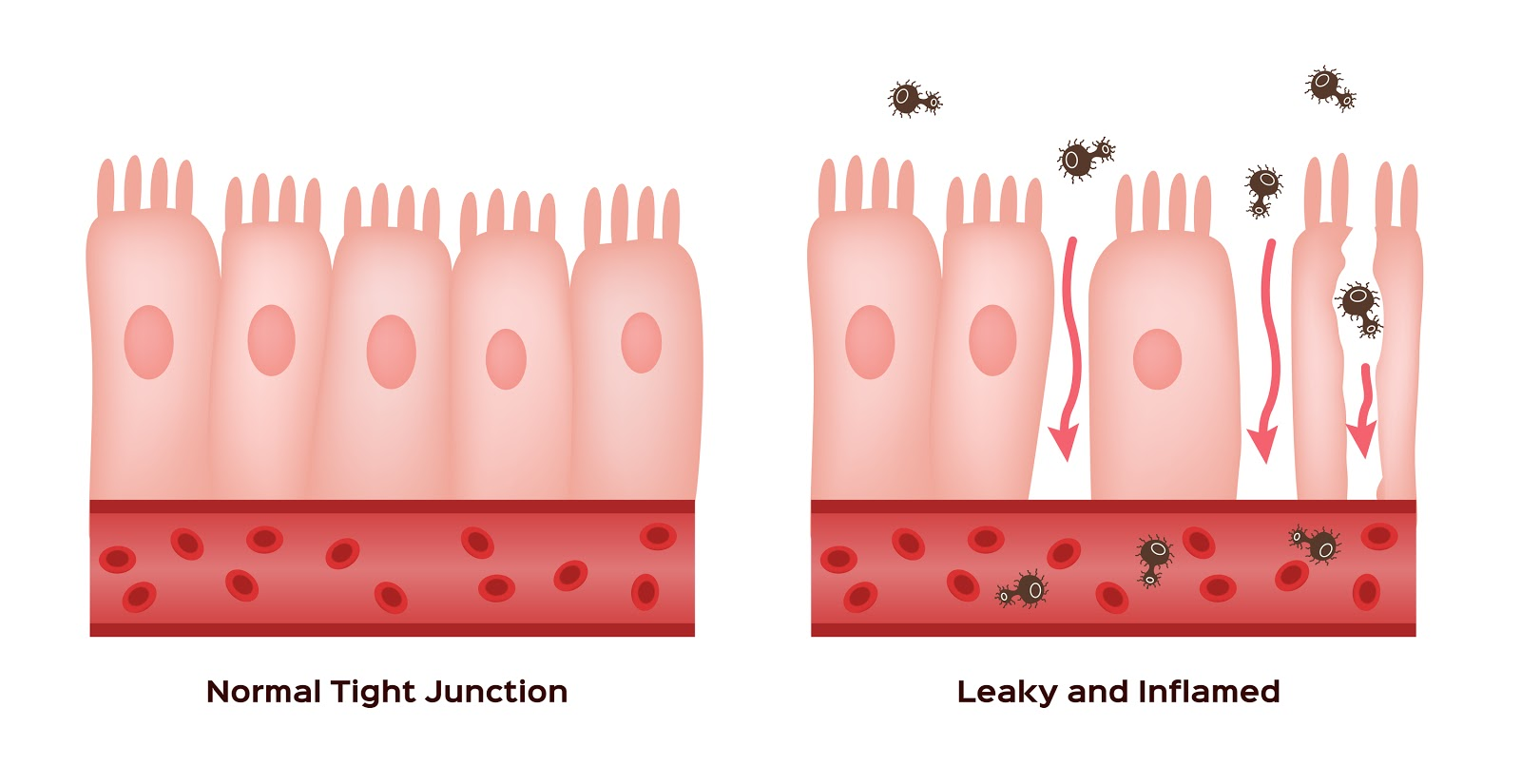
Susan
 Susan’s Optimum Health Goals
Susan’s Optimum Health Goals
So, What IS Leaky Gut?
So you’ve likely heard the term Leaky Gut used but what does it mean? LEAKY GUT, also referred to as “Intestinal Permeability” is a condition in which the ‘tight junctions’ of the small intestine are affected. If you were to look at these junctions under a microscope, they would appear as small gaps in the intestinal wall. These gaps are important for how we absorb and assimilate food by allowing water and vital nutrients to pass through with ease to be absorbed by the body while small enough to block the ability of foreign substances to pass through. So, naturally, when these tight junctions become damaged, foreign substances such as undigested food particles, waste products, and bacteria will “leak” through the walls of the intestine and into the bloodstream.
This degradation in the junctions will also lead to a noticeable decrease in the intestinal enzymes needed for proper digestion. When in the bloodstream the immune system builds IgG antibodies to these “foreign” molecules that do not belong and in turn, cause an autoimmune response that will treat some of the tasty morsels of food you love as enemies and will mark them as such for potential perceived future “threats”. Consequently, being unable to digest common foods you would normally enjoy!
This immune response to these invaders can present in the body as any of these nine signs and symptoms:
| Chronic diarrhea, constipation, gas, or bloating.Food allergies or food intolerances.Poor immune system.Headaches, brain fog, memory loss.Excessive fatigue.Skin rashes and problems such as acne, eczema, or rosacea.Cravings for sugar or carbs.Joint Pain or Body Aches.Mood imbalances such as depression and anxiety. |
What Can Cause Leaky Gut?
So, now that we are up to speed on the “what” of Leaky Gut, you may be wondering, “How did I get here?”
Here is a quick breakdown of some of the most common causes of Leaky Gut that can help navigate the “WHY” behind gut permeability:
- Stress:
Chronic stress is a contributing factor to multiple gastrointestinal disorders, including leaky gut. - Repeated ingestion of inflammatory foods:
Most common being gluten, dairy, alcohol, and sugar - Gut Infections:
Small Intestinal Bacteria Overgrowth (SIBO), Candida overgrowth, and parasites due to contaminated foods, water, or soil. - Non-steroidal anti-inflammatory drugs (NSAIDs):
The long-term use of NSAIDs like ibuprofen can increase intestinal permeability and contribute to leaky gut.
Supporting a Healthy Gut
When we approach balancing the digestive system to get it back on track, sticking to the 4 Stages or 4Rs of gut-healing in the correct order listed will ensure long-lasting and effective results. Throughout each stage, herbs like ginger, turmeric, and peppermint will go a long way in soothing any bloating or discomfort you may continue to experience.
Working on each stage until symptoms are reduced and system balances are restored is the best way to ensure optimal gut health. The time it takes to heal the gut is often dependent on the individual and is often a work in progress. Always make sure you are working with an expert before undertaking a strict protocol like this one.


